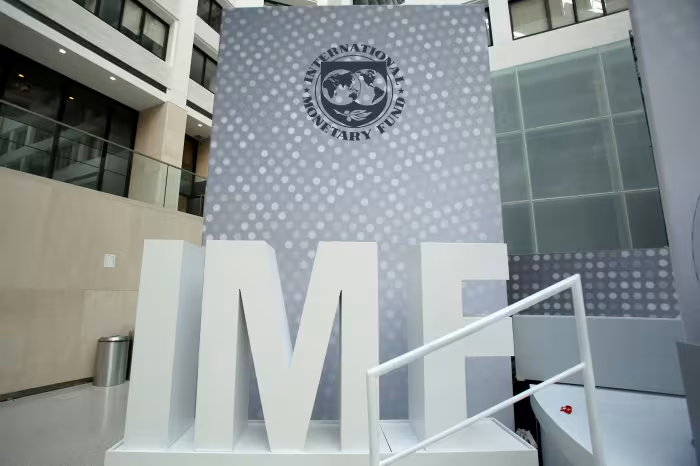Introduction
As financial markets continue to experience uncertainty and volatility, expert opinions and forecasts play a crucial role in guiding investors through the complexities of the global economy. Market experts—from economists and analysts to financial advisors and institutional investors—constantly assess economic data, geopolitical developments, and financial market trends to provide insights into how markets may perform in the near future.
The outlook for the coming months is critical for investors looking to make informed decisions in an environment characterized by ongoing inflationary pressures, interest rate changes, geopolitical tensions, and market corrections. Experts are particularly focused on identifying key economic indicators, sector trends, and policy shifts that could impact market behavior.
This article explores the key opinions from experts regarding the market outlook for the coming months, drawing from a range of economic analyses, sector-specific insights, and broader market predictions.
Section 1: Economic Indicators and the General Market Outlook
1.1 Inflation and Interest Rates
One of the most discussed topics among experts is inflation and its potential impact on the market. Inflation has remained persistently high across many regions, and central banks have responded with aggressive monetary tightening measures, such as interest rate hikes. Experts’ opinions on this matter are divided, but there is a consensus that inflation will remain a key concern in the coming months.
- Continued Rate Hikes: Many experts expect that central banks, particularly the U.S. Federal Reserve and the European Central Bank, will continue their interest rate hikes until inflation is more firmly under control. The Federal Reserve has made it clear that it intends to bring inflation down to its target of around 2%, and experts anticipate that interest rates will stay elevated for a while.
- Slower Economic Growth: As interest rates rise, borrowing costs increase, which can dampen consumer spending and business investment. Experts warn that higher rates may lead to slower economic growth in the short term, potentially triggering a recession in certain regions. However, some experts argue that a soft landing is possible if the central banks manage to balance inflation control with economic stability.
- Inflation Persistence: Even as central banks hike rates, inflation may remain stubborn due to ongoing supply chain disruptions, geopolitical conflicts, and high energy prices. Experts suggest that inflation might come down gradually but not to pre-pandemic levels in the near future, which will continue to impact consumer behavior and asset valuations.
1.2 Economic Slowdown and Recession Risks
The risk of a global recession is another key concern for experts in the coming months. While some experts believe that a recession is inevitable, others are more optimistic, believing that economies can avoid a severe downturn.
- Growth Slows but Avoids Recession: Many experts predict that while growth will slow in the coming months, it may not necessarily lead to an outright recession. Some experts argue that labor markets remain strong, and consumer spending has been relatively resilient, which could help avoid a sharp contraction in economic activity.
- Geopolitical Tensions and Global Trade: The ongoing geopolitical tensions, including the Russia-Ukraine conflict, trade disputes between the U.S. and China, and rising energy costs, continue to weigh on the global economy. Experts emphasize that these geopolitical risks could prolong the economic slowdown, especially in regions that rely heavily on global trade.
- Sector-Specific Recession Risks: Certain sectors may face more immediate recession risks than others. For example, the technology sector, which has been particularly sensitive to rising interest rates, may struggle to maintain its growth momentum. On the other hand, sectors such as healthcare, utilities, and consumer staples may prove more resilient in the face of economic slowdown.
Section 2: Sector-Specific Outlooks
2.1 The Technology Sector
The technology sector, which has been a driving force of market growth in recent years, is facing increased challenges due to rising interest rates and macroeconomic uncertainty. Experts have mixed opinions on the future of technology stocks, with some forecasting continued growth while others predict a period of underperformance.
- Valuation Pressure: Technology stocks have experienced a correction over the past year, as rising interest rates have put pressure on their valuations. Many experts believe that the sector will face continued volatility as investors reassess the long-term growth potential of tech companies in a higher-rate environment.
- Innovation Continues: Despite short-term headwinds, experts agree that technological innovation will continue to drive growth in the sector. Companies involved in artificial intelligence (AI), cloud computing, cybersecurity, and renewable energy technologies are expected to benefit from increasing demand for their products and services in the coming months.
- Growth vs. Value: Some experts suggest that the growth stocks within the technology sector may struggle in the near term, while value-oriented tech stocks (such as those with strong cash flows and low valuations) may perform better. Investors are expected to focus on companies with sustainable business models and strong fundamentals.
2.2 The Energy Sector
The energy sector, particularly oil and gas, has been one of the standout performers in recent months, largely due to the volatility in global energy prices driven by geopolitical events. However, the outlook for energy remains uncertain as experts grapple with the long-term implications of the global energy transition and the potential for continued supply disruptions.
- Oil Prices Remain High: Many experts predict that oil prices will remain elevated in the coming months, primarily due to the ongoing war in Ukraine and supply chain issues. The Organization of the Petroleum Exporting Countries (OPEC) and other major producers may continue to restrict supply, keeping oil prices at elevated levels. However, some analysts believe that demand for oil could slow if global economic conditions worsen.
- Renewable Energy Growth: The shift toward renewable energy is expected to continue, driven by government policies, technological advancements, and corporate commitments to reduce carbon emissions. Experts believe that solar, wind, and green hydrogen technologies will continue to attract significant investment in the coming months, particularly in Europe and the U.S.
- Geopolitical Impact on Energy Markets: Geopolitical events will continue to have a profound impact on energy markets. The Russia-Ukraine conflict has forced many countries to reconsider their energy security, leading to higher demand for alternatives. Experts argue that energy diversification will remain a key focus for many nations, potentially benefiting renewable energy sources.
2.3 The Financial Sector
The financial sector, including banks and insurance companies, is likely to see varying levels of impact from rising interest rates, economic slowdown, and regulatory changes. Experts have different opinions on the sector’s outlook, depending on the specific market conditions.
- Higher Interest Rates Benefit Banks: Many experts believe that rising interest rates will benefit traditional banks by increasing net interest margins (the difference between interest paid on deposits and interest earned on loans). Banks could see higher profits from lending activity, particularly in commercial real estate and corporate lending.
- Concerns Over Credit Quality: On the other hand, there are concerns about the potential rise in loan defaults if the economy slows and unemployment increases. If recession risks materialize, credit quality could deteriorate, leading to higher provisions for loan losses. This could weigh on bank earnings.
- Fintech Growth: The fintech sector is expected to continue to grow, with experts predicting increased demand for digital payment solutions, blockchain technology, and alternative lending platforms. However, some analysts caution that the sector may face regulatory scrutiny as governments tighten oversight of financial technologies.

Section 3: Geopolitical Risks and Global Events
3.1 Geopolitical Tensions
Geopolitical risks are a constant factor in global markets, and experts agree that these risks are likely to remain elevated in the near term. The Russia-Ukraine conflict, tensions in the South China Sea, and the evolving U.S.-China relationship all pose significant risks to global stability and market performance.
- Impact on Supply Chains: Geopolitical tensions, particularly related to trade and energy, continue to disrupt global supply chains. Experts warn that these disruptions may persist, leading to higher input costs for businesses and further inflationary pressures.
- Investor Caution: In uncertain geopolitical environments, investors often adopt a risk-off mentality, leading to increased volatility and capital flight from higher-risk assets. Experts suggest that geopolitical risks could lead to market corrections, particularly in emerging markets, which are more vulnerable to external shocks.
- Regional Variations: While some regions, such as Asia and Europe, are directly impacted by geopolitical tensions, others—like the U.S. and certain emerging markets—may be less affected in the short term. Experts emphasize the importance of regional diversification to mitigate the risks of geopolitical instability.
3.2 The Global Economic Transition
The ongoing transition to a more sustainable global economy, driven by decarbonization efforts, is another important theme in expert analyses. This shift is expected to have far-reaching effects on various sectors and markets.
- Green Investment Opportunities: Experts predict that investments in clean energy, electric vehicles, and sustainability-focused technologies will continue to grow as governments around the world ramp up their climate policies. The green economy is seen as a key driver of future growth, attracting significant capital in the coming months.
- Stranded Assets: Some experts caution that traditional fossil fuel companies may face challenges as the global economy shifts toward renewable energy. The risk of stranded assets—investments in fossil fuels that lose value as demand declines—could pose a threat to energy markets and related industries.
Section 4: Conclusion
As experts analyze the key factors shaping the market outlook for the coming months, it is clear that investors must navigate an environment characterized by both opportunities and risks. While inflation, interest rates, and geopolitical tensions remain significant concerns, experts also point to potential growth areas in technology, renewable energy, and financial services.
The outlook for the market will depend on how these factors evolve and how investors respond to emerging trends. For the near future, experts recommend staying informed about economic data, maintaining diversified portfolios, and considering the potential for both short-term volatility and long-term growth in various sectors. By closely monitoring macroeconomic indicators and sector-specific trends, investors can better position themselves to manage risk and seize opportunities in an uncertain market environment.

































